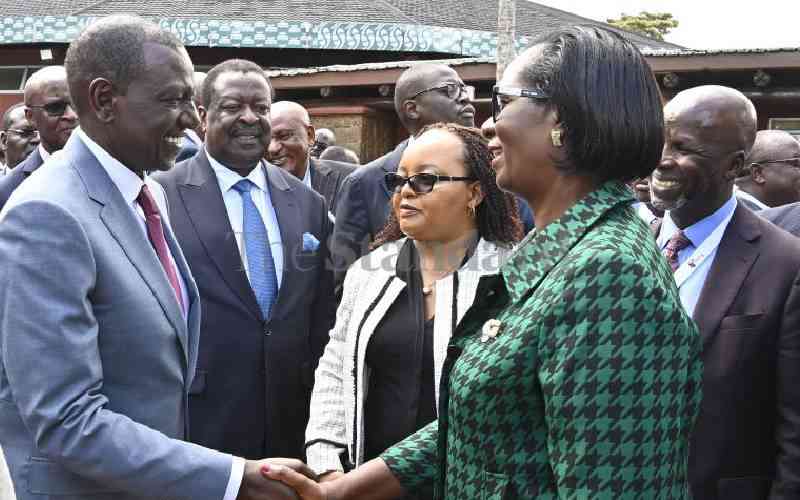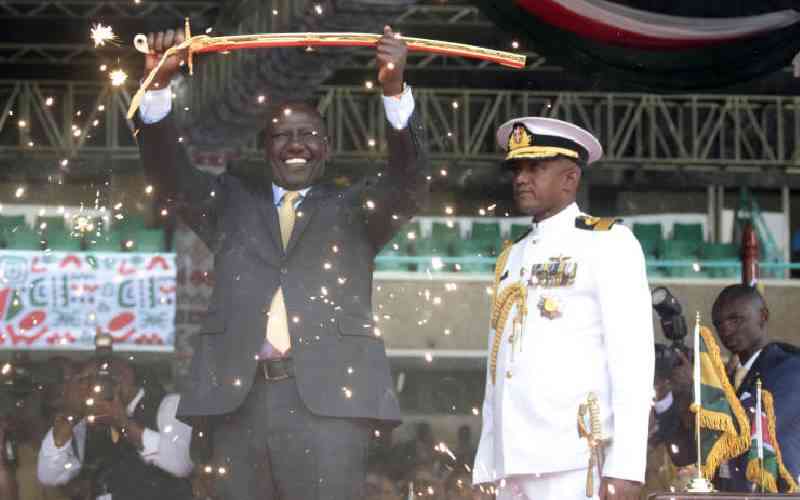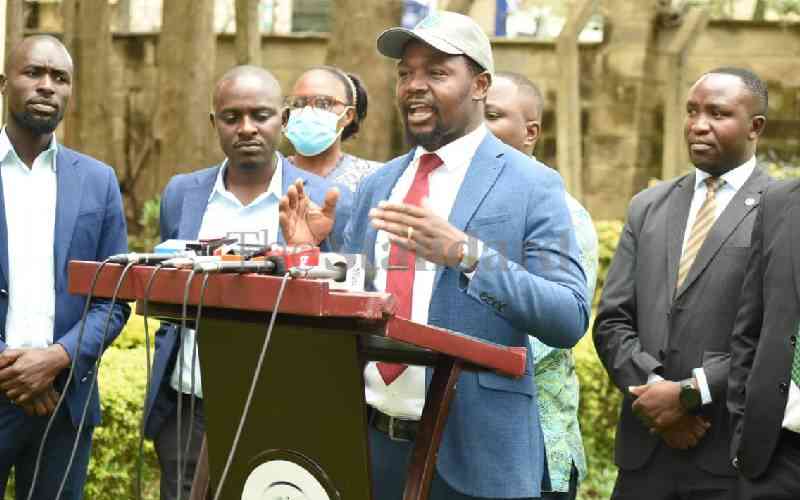By Peter Opiyo
The deadline for judgments to be delivered on pending cases related to the 80 new constituencies might be pushed forward by two months if a Bill is passed by Parliament.
The proposed law is the Statute Law (Miscellaneous Amendments) Bill 2012 whose debate began on Thursday last week.
While the Independent Electoral and Boundaries Commission (IEBC) Act set one month as the period for determination of such cases by the High Court, the Bill proposes to raise this to three months from the date the cases are filed by amending the Fifth Schedule of the Act.
Several individuals and groups have moved to court to challenge the 80 new electoral units IEBC created 80. IEBC also created 1,450 units for wards in the 47 counties. Its report was published in the Kenya Gazette on March 6, 2012 and the public was given 30 days to challenge its decision in Court.
The hearing and determination of the cases were set to expire on May 6, but the new proposal now pushes this to July. The country is supposed to go to elections with the new electoral units (290 for constituencies and 1,450 for wards) since they are already included in the new constitution.
While many people have hailed the IEBC preliminary report on delimitation of wards and constituency boundaries, others faulted it for not respecting their proposals.
The issue is known to have sparked conflicts between some communities who have been living in harmony for sometime.
It has also been an issue among MPs who fear some of their supporters were moved to other regions.
In Baringo, where the Tugen and Pokot are neighbours, tension still remains high after conflict broke out between the two communities over new voting zones, with both claiming ownership of some areas.
At the same time the Bill proposes that submission of nomination rules by political parties to IEBC be shortened, with the parties required to submit the rules three months before nomination of its candidates instead of six months as required by the Elections Act, Section 27.
extension in office
In the Bill, known as Omnibus, in Parliamentary parlance, public officers seeking elective positions have been granted a two-month extension in office.
They would now be required to resign at least seven months before the elections instead of five currently by amending Section 43 of the Elections Act. With the general election date set at March 4 next year, it means public officers with interest in elective posts can stay in office until October.
But two have already resigned to try their hand in politics. Prof James ole Kiyiapi resigned as Education permanent secretary last month, to launch his presidential campaign through the Restore and Build Kenya party.
Stay informed. Subscribe to our newsletter
Early this month, Philip Kisia also resigned as Nairobi Town Clerk to campaign for the position of Governor of Nairobi County.
Quite a number of public servants have shown interest in politics and should the Bill be adopted by Parliament.
Among them are acting Head of the Civil Service Mr Francis Kimemia, Livestock Development PS Mr Ken Lusaka, Immigration PS Mr Emmanuel Kisombe, Forestry and Wildlife PS Mohamed Wamwachai and Public Works PS John Lonyangapuo.
relaxed rules
The Bill that amends a series of existing laws also relaxes requirements for registered voters. While it has been a tradition that voters must produce both an identity and voter’s card to participate in the polls, the proposals now allow them to use the voter’s card as they are registered voter in that polling station.
It amends Section 10 of the Elections Act to provide for a voter’s card as one of the documents a person may produce during voting.
The proposed law also amends Section 35 of the Political Parties Act to allow for the extension of the appointment of the Selection Committee that will recruit the Registrar of Political Parties and the assistant.
Though the Political Parties Act gives the President and the Prime Minister 14 days from the commencement of the Act to appoint the Committee, the Bill seeks to give them an opportunity to extend this period but not outside 21 days.
 The Standard Group Plc is a
multi-media organization with investments in media platforms spanning newspaper
print operations, television, radio broadcasting, digital and online services. The
Standard Group is recognized as a leading multi-media house in Kenya with a key
influence in matters of national and international interest.
The Standard Group Plc is a
multi-media organization with investments in media platforms spanning newspaper
print operations, television, radio broadcasting, digital and online services. The
Standard Group is recognized as a leading multi-media house in Kenya with a key
influence in matters of national and international interest.
 The Standard Group Plc is a
multi-media organization with investments in media platforms spanning newspaper
print operations, television, radio broadcasting, digital and online services. The
Standard Group is recognized as a leading multi-media house in Kenya with a key
influence in matters of national and international interest.
The Standard Group Plc is a
multi-media organization with investments in media platforms spanning newspaper
print operations, television, radio broadcasting, digital and online services. The
Standard Group is recognized as a leading multi-media house in Kenya with a key
influence in matters of national and international interest.








